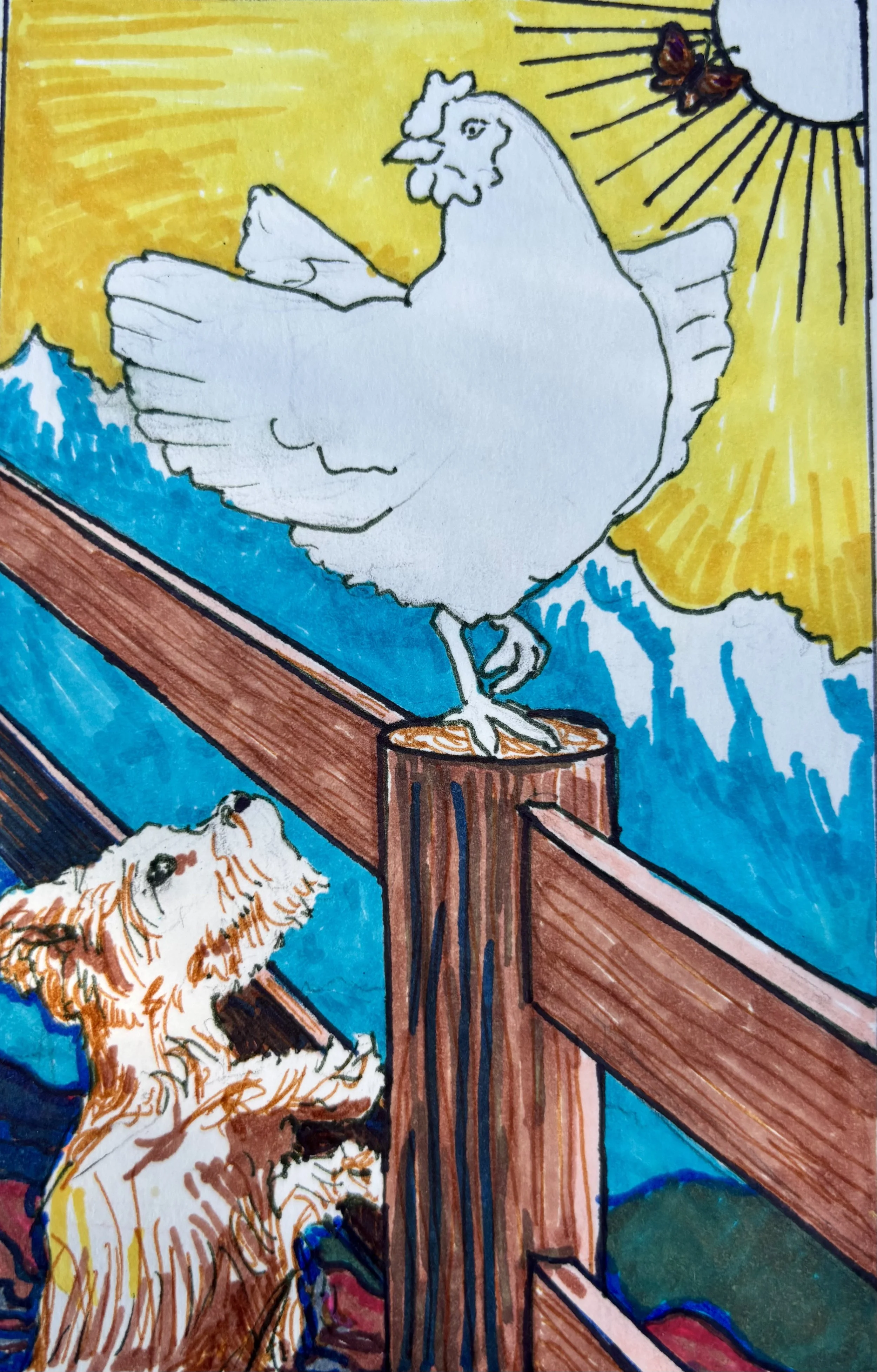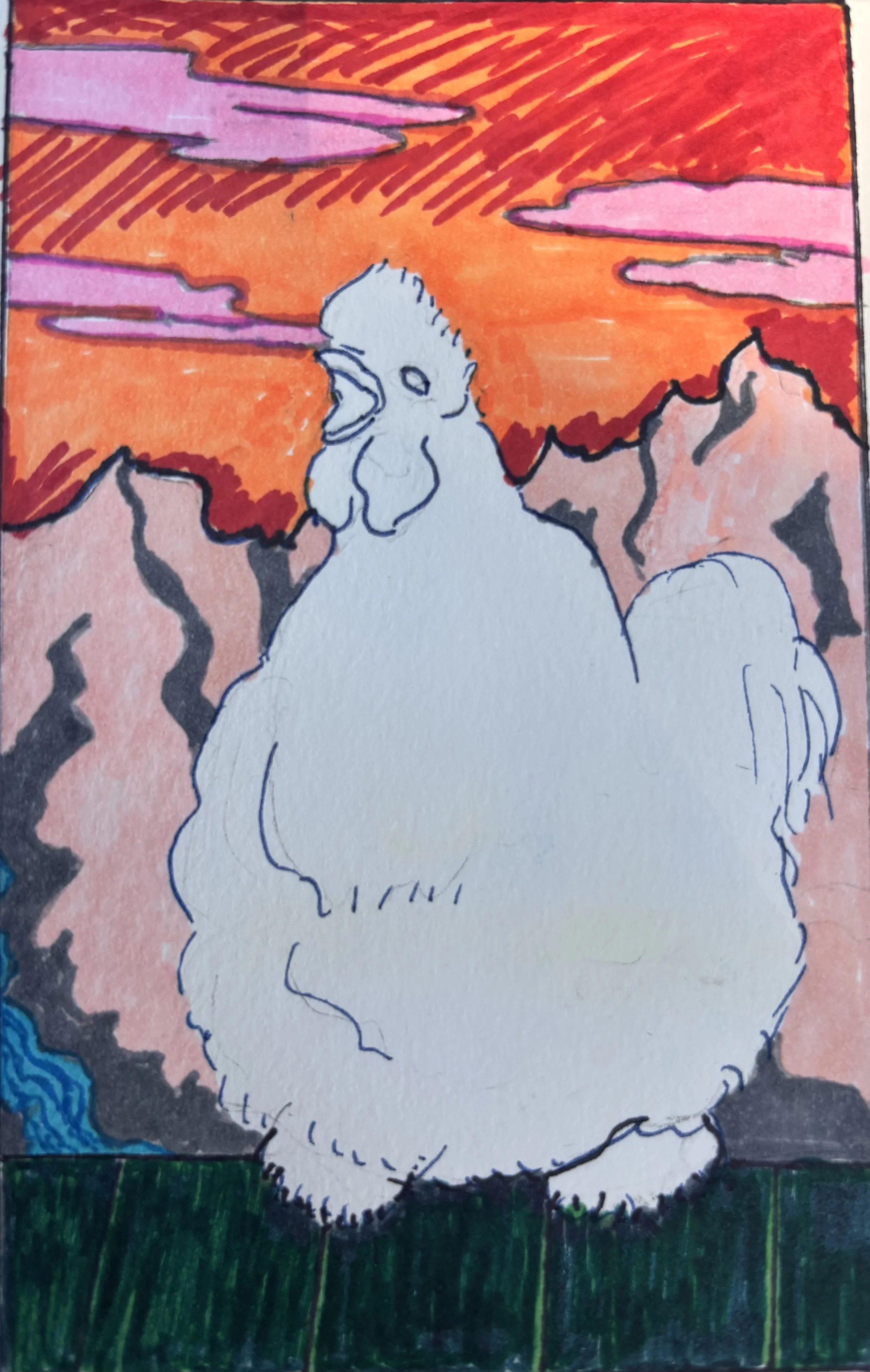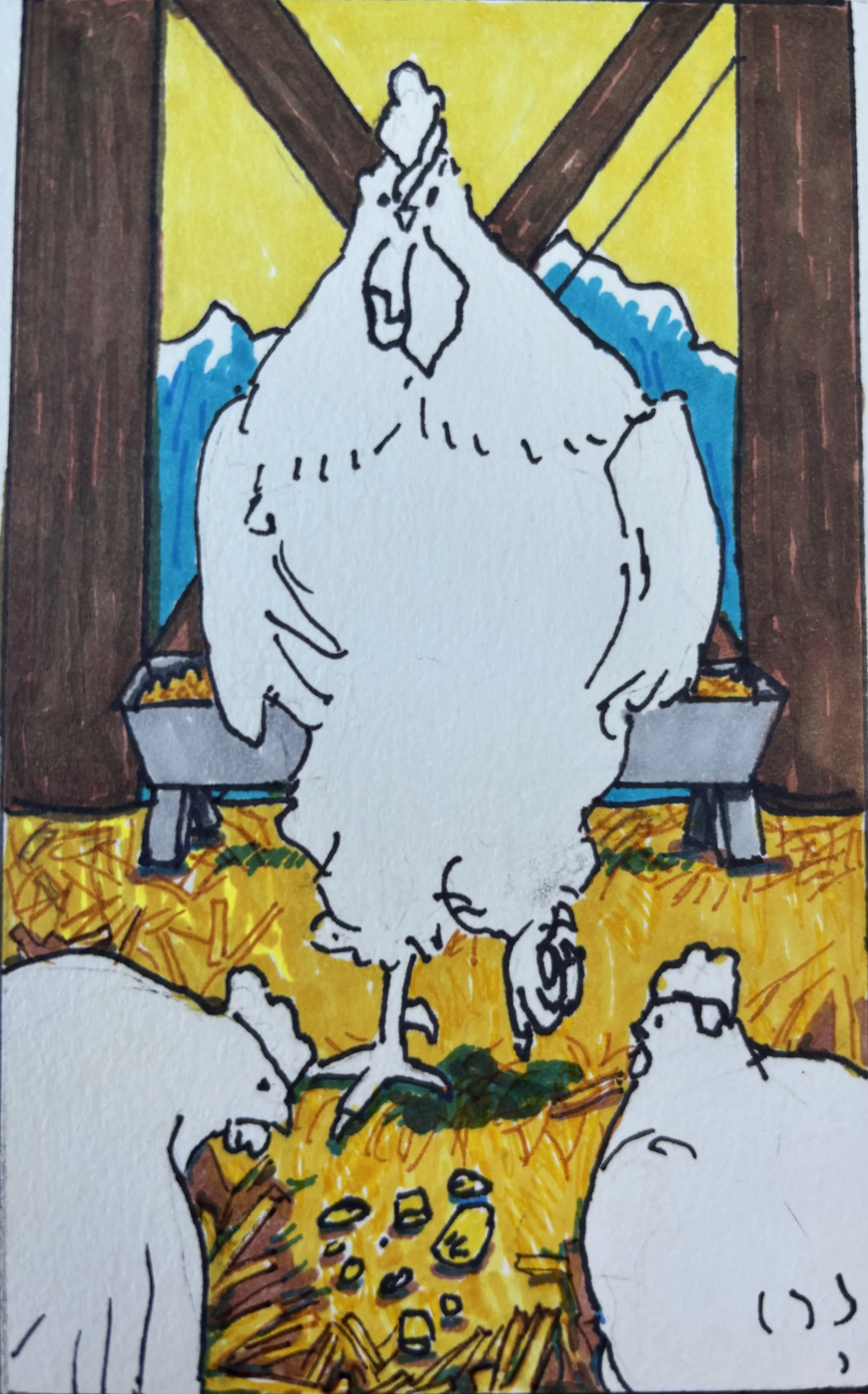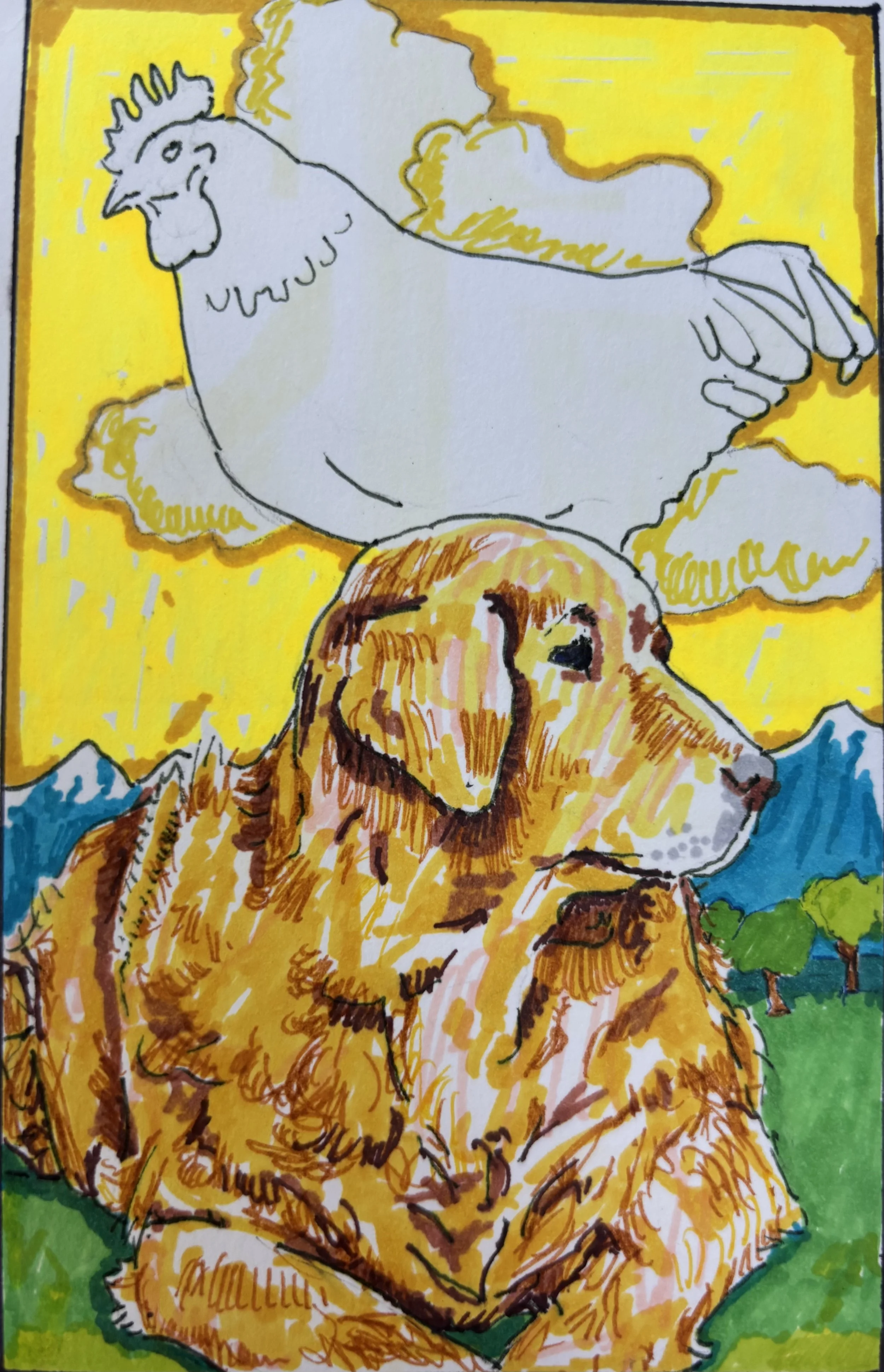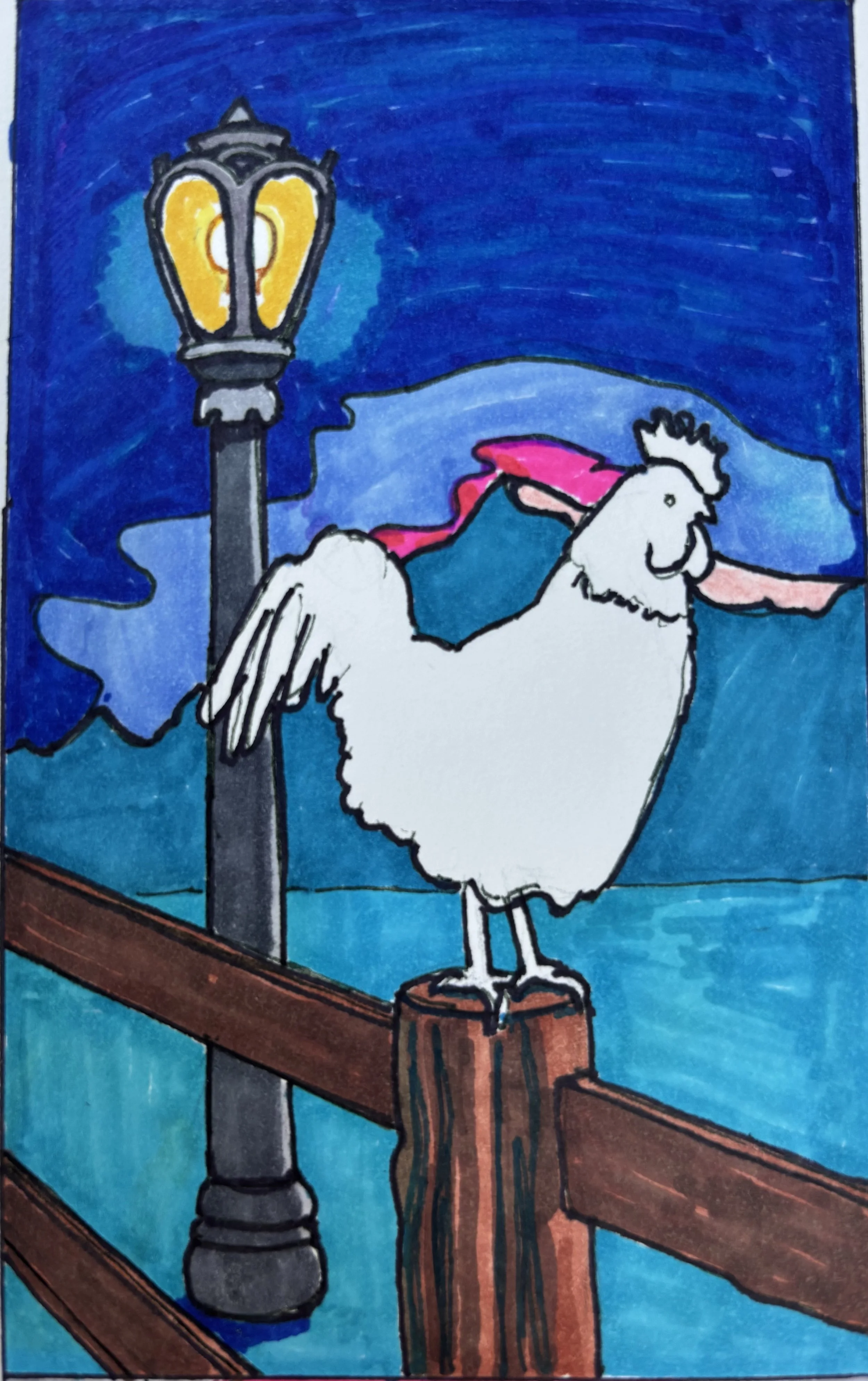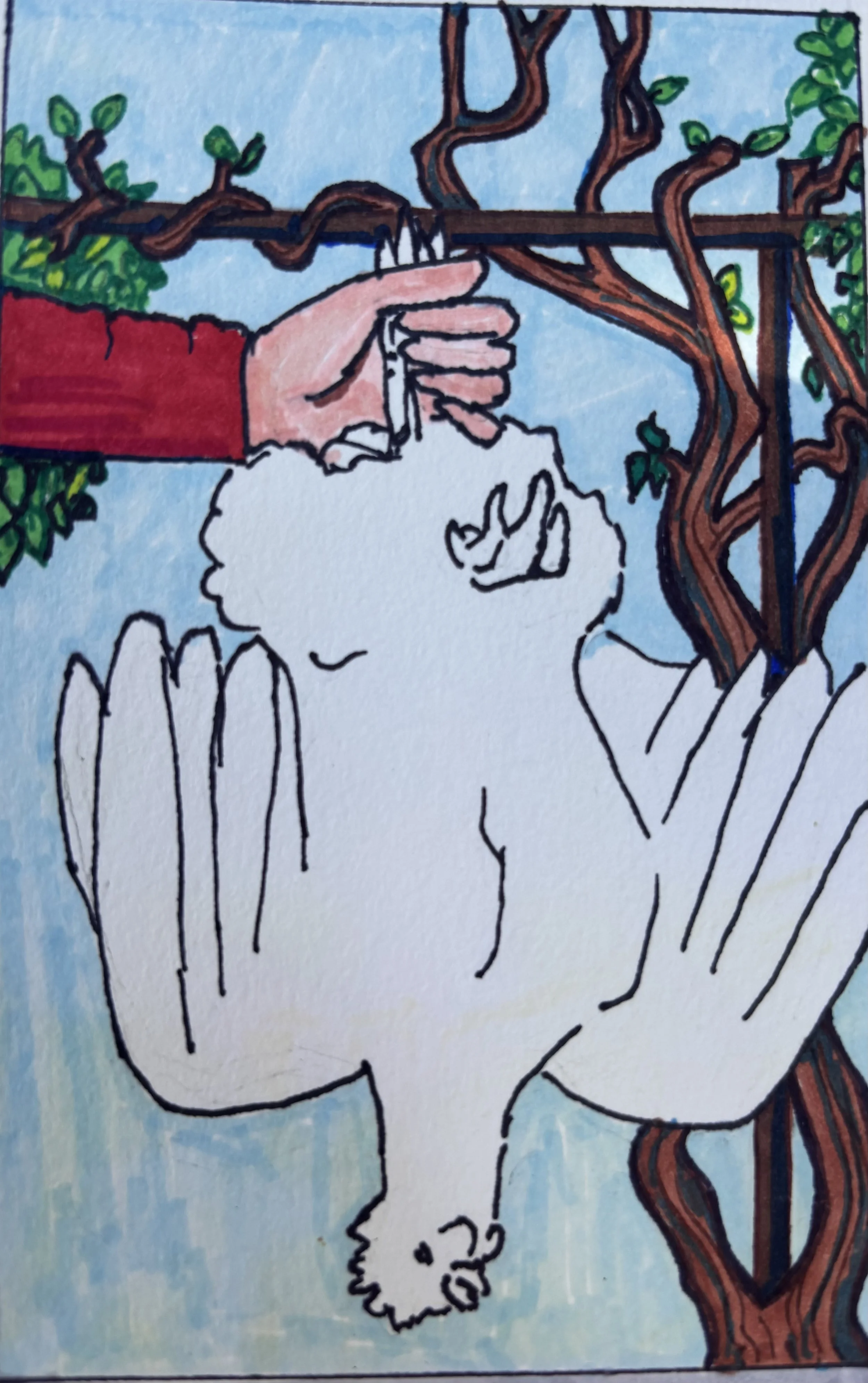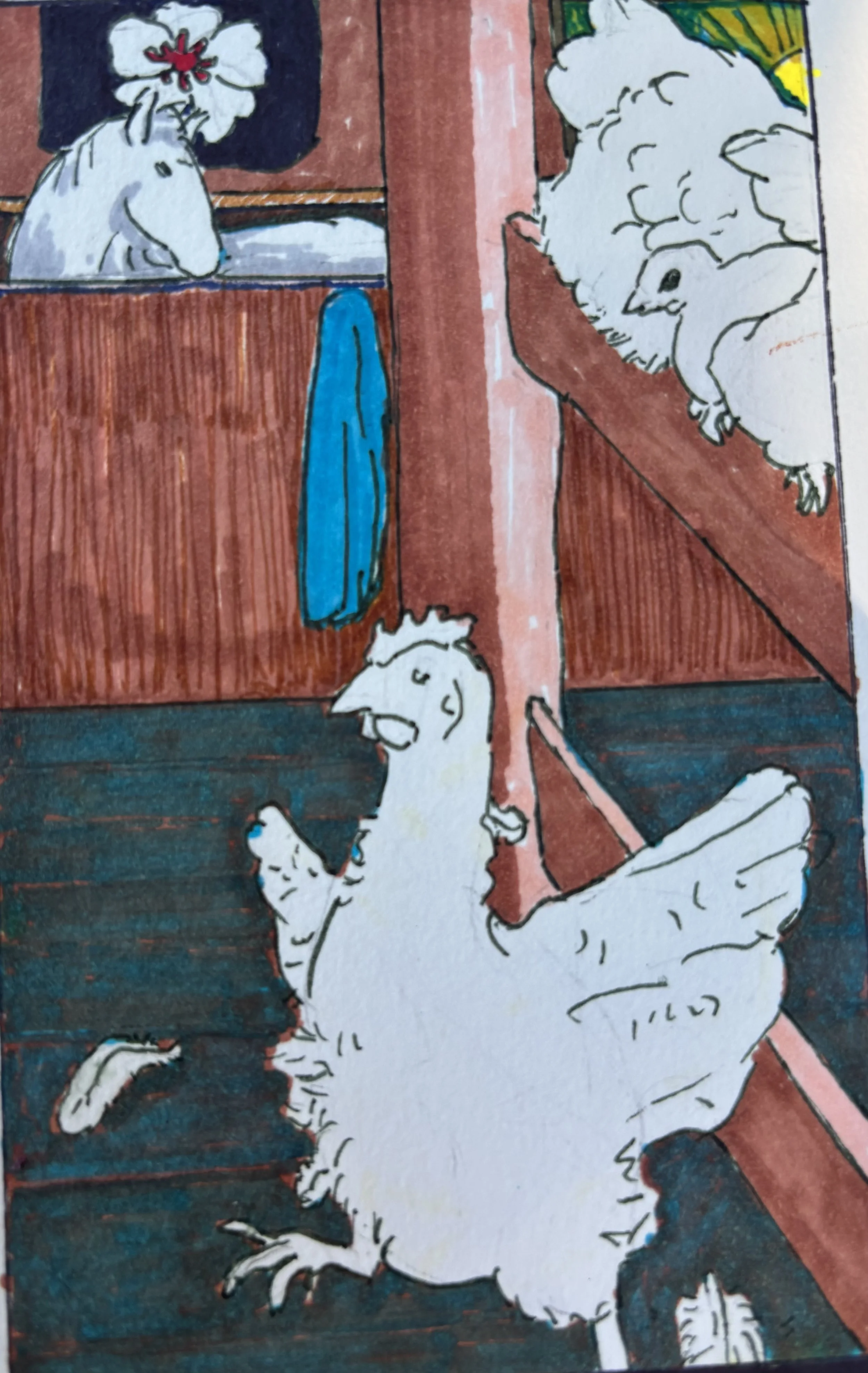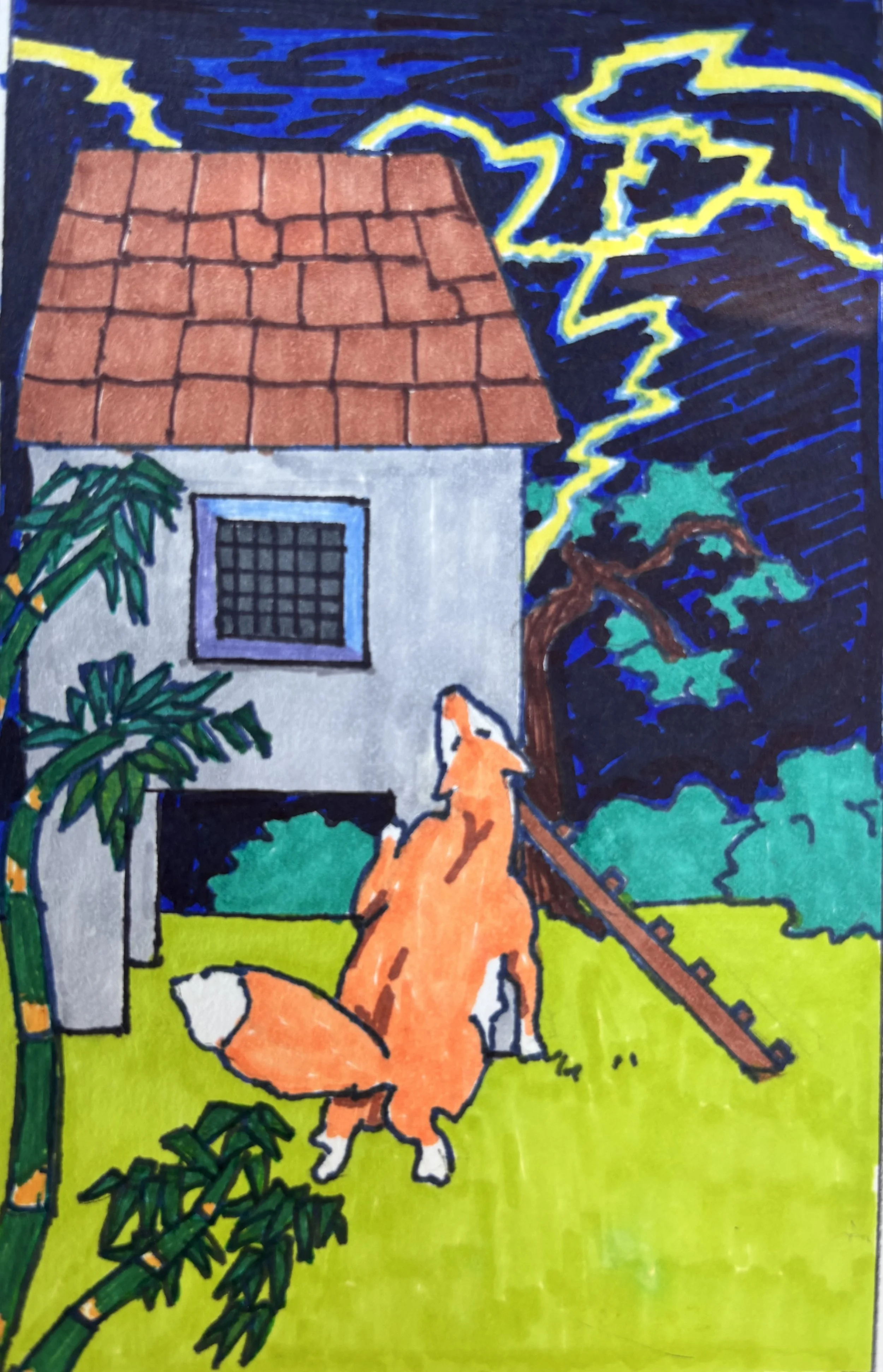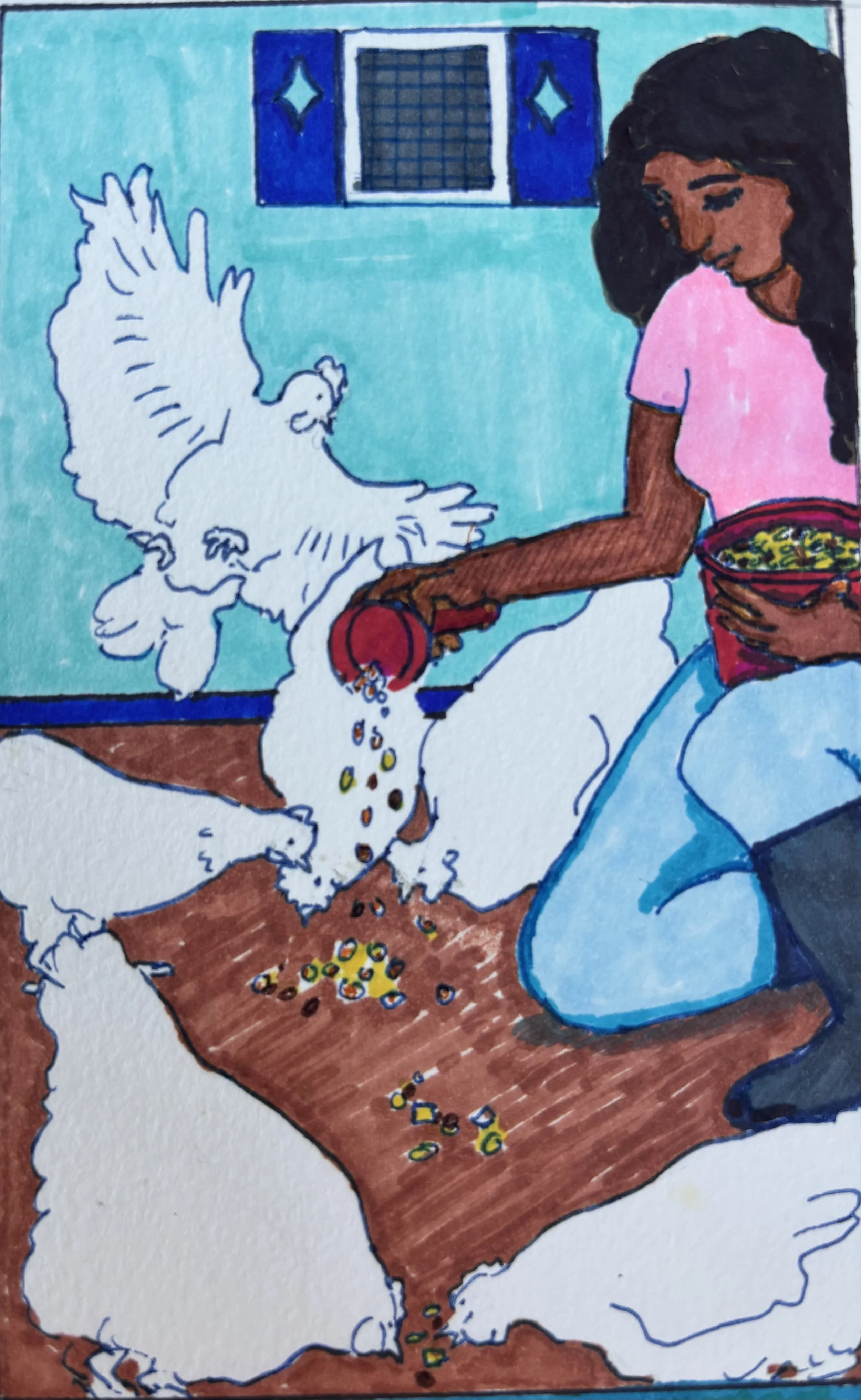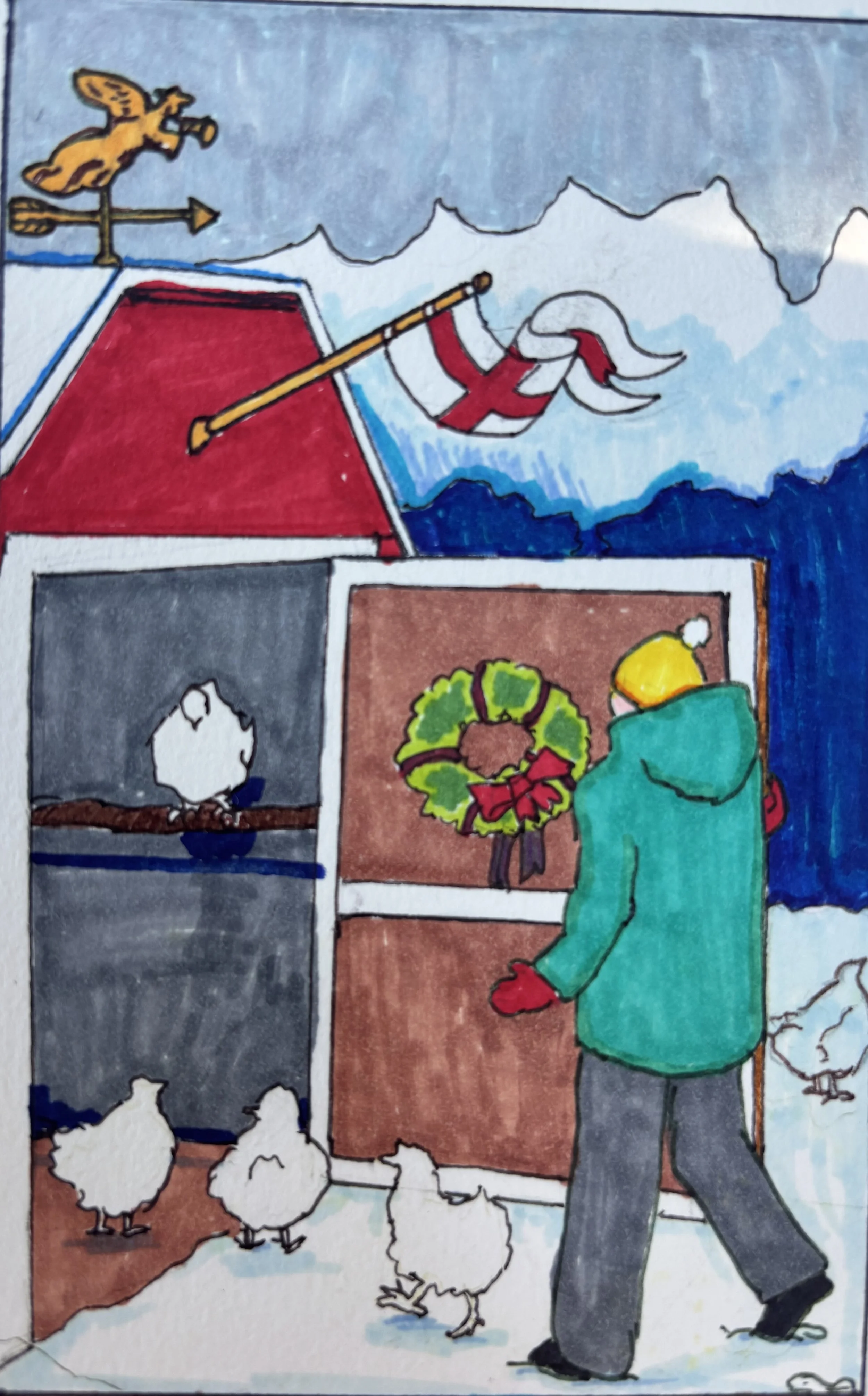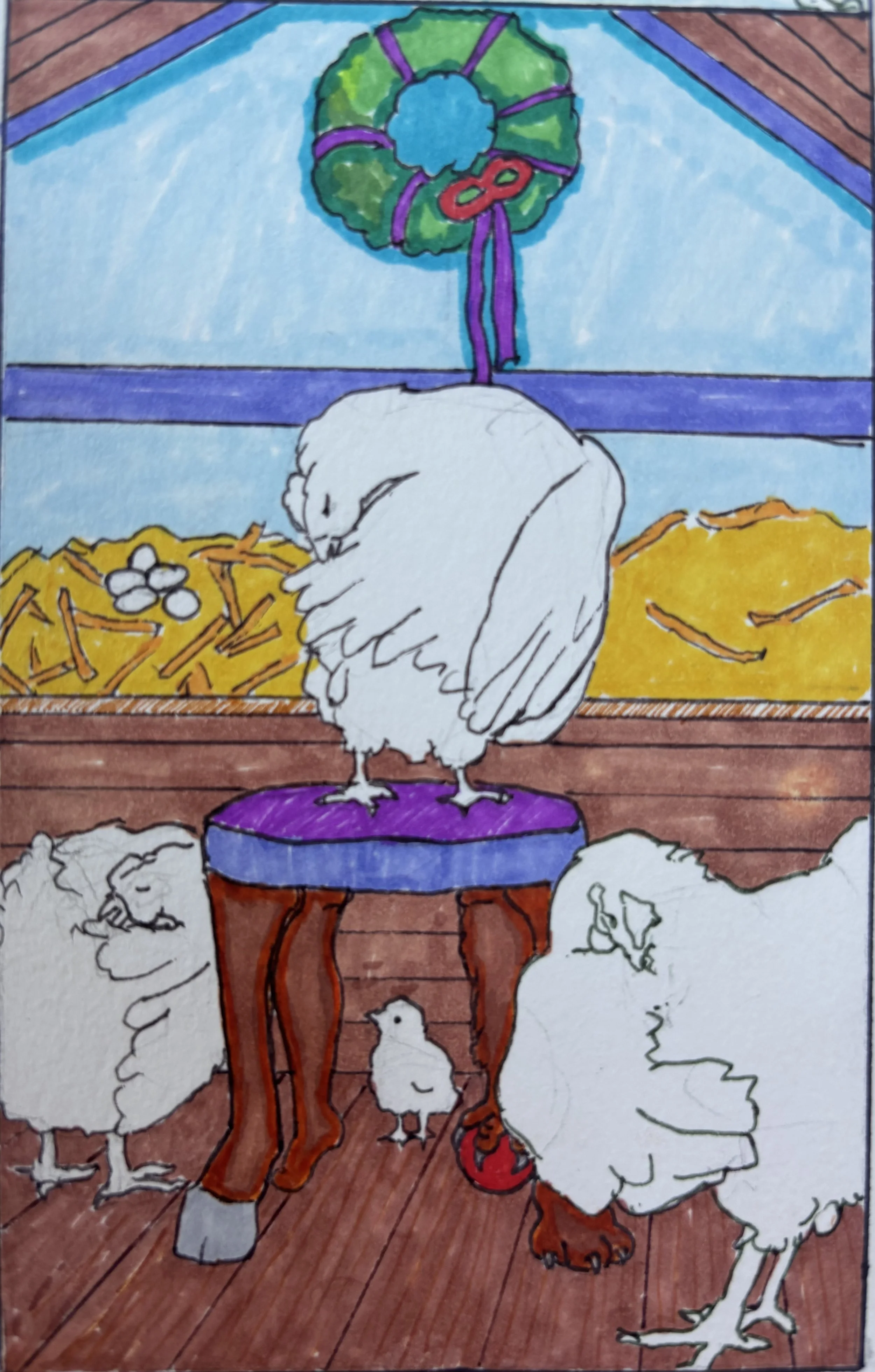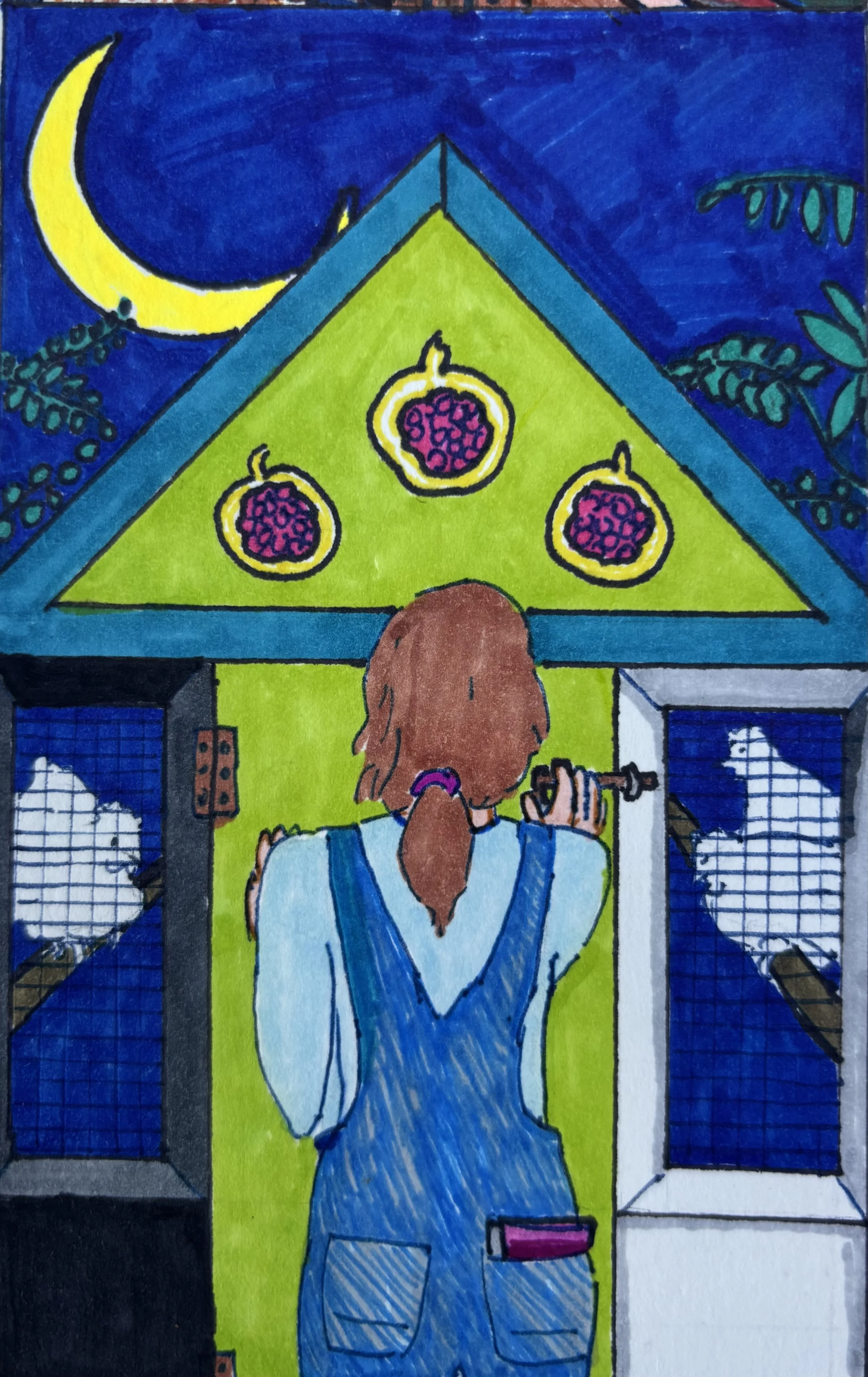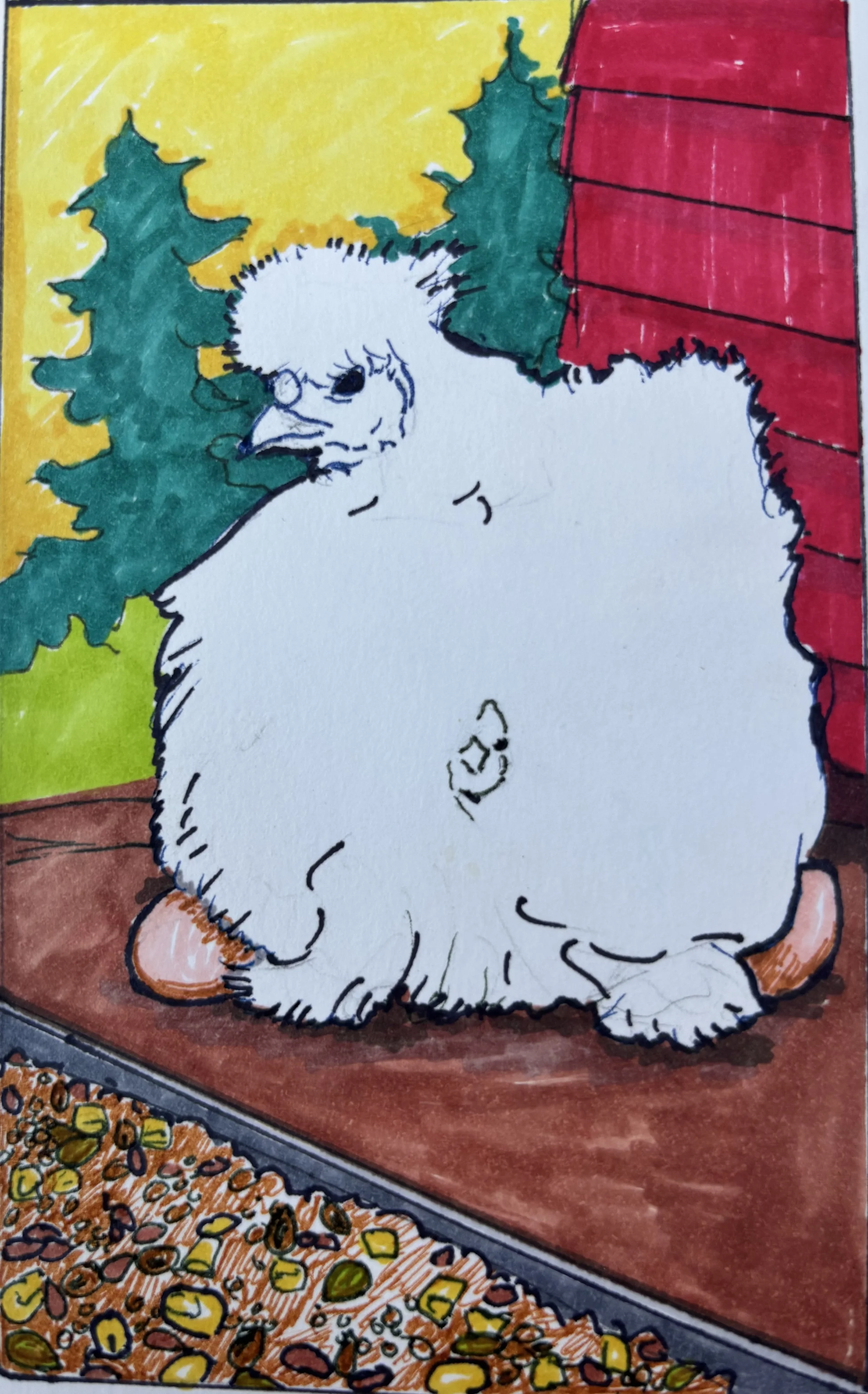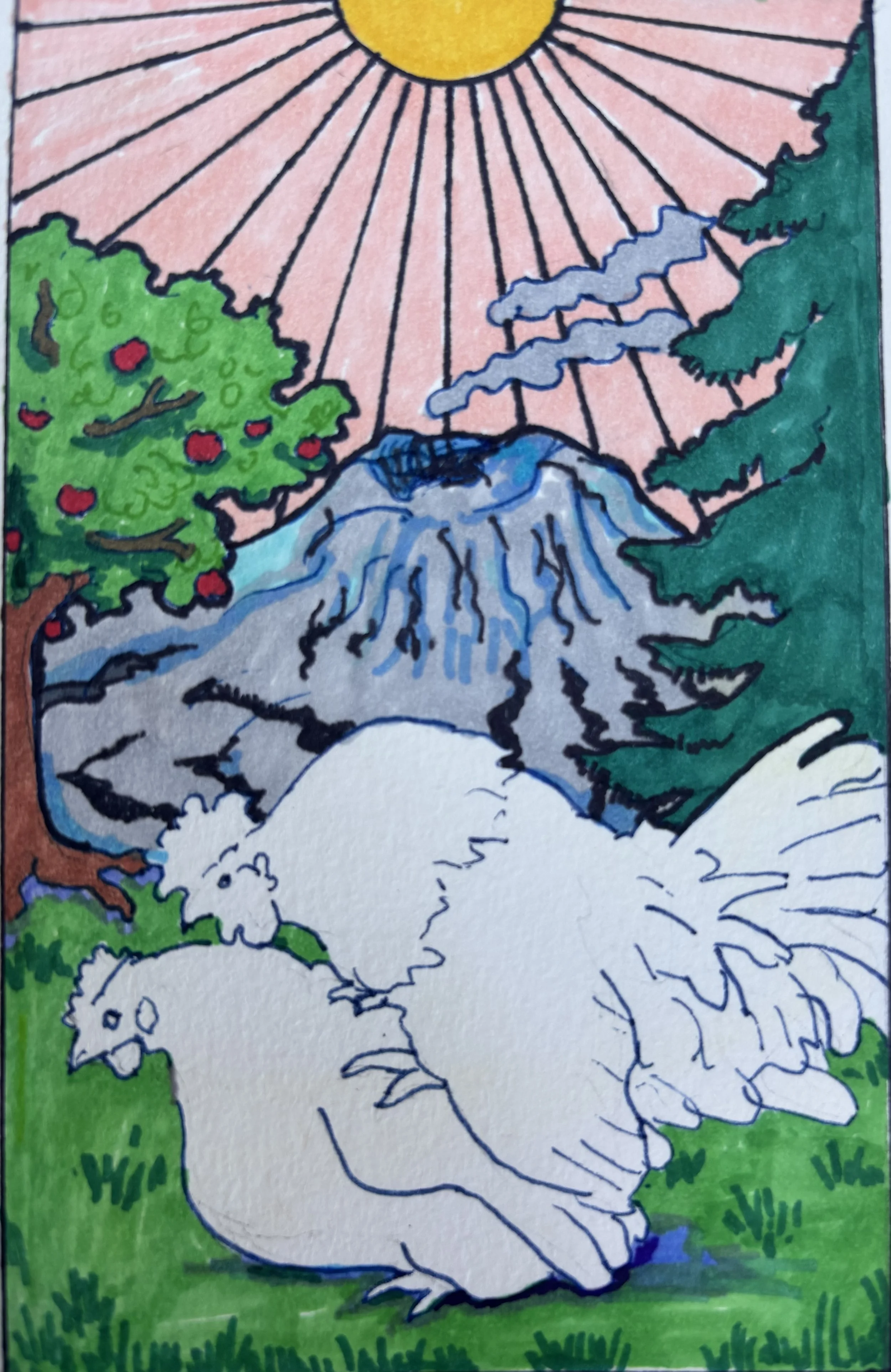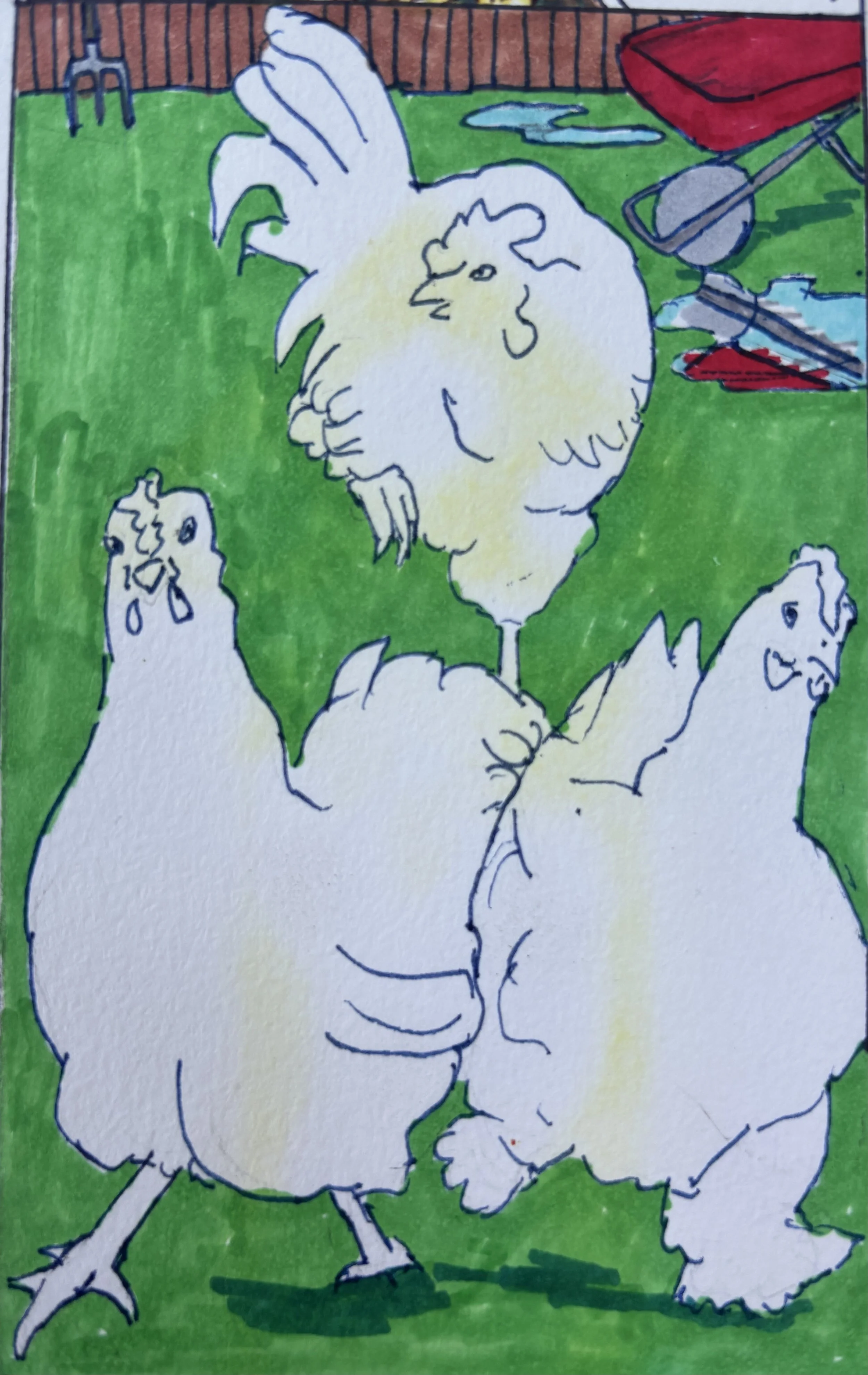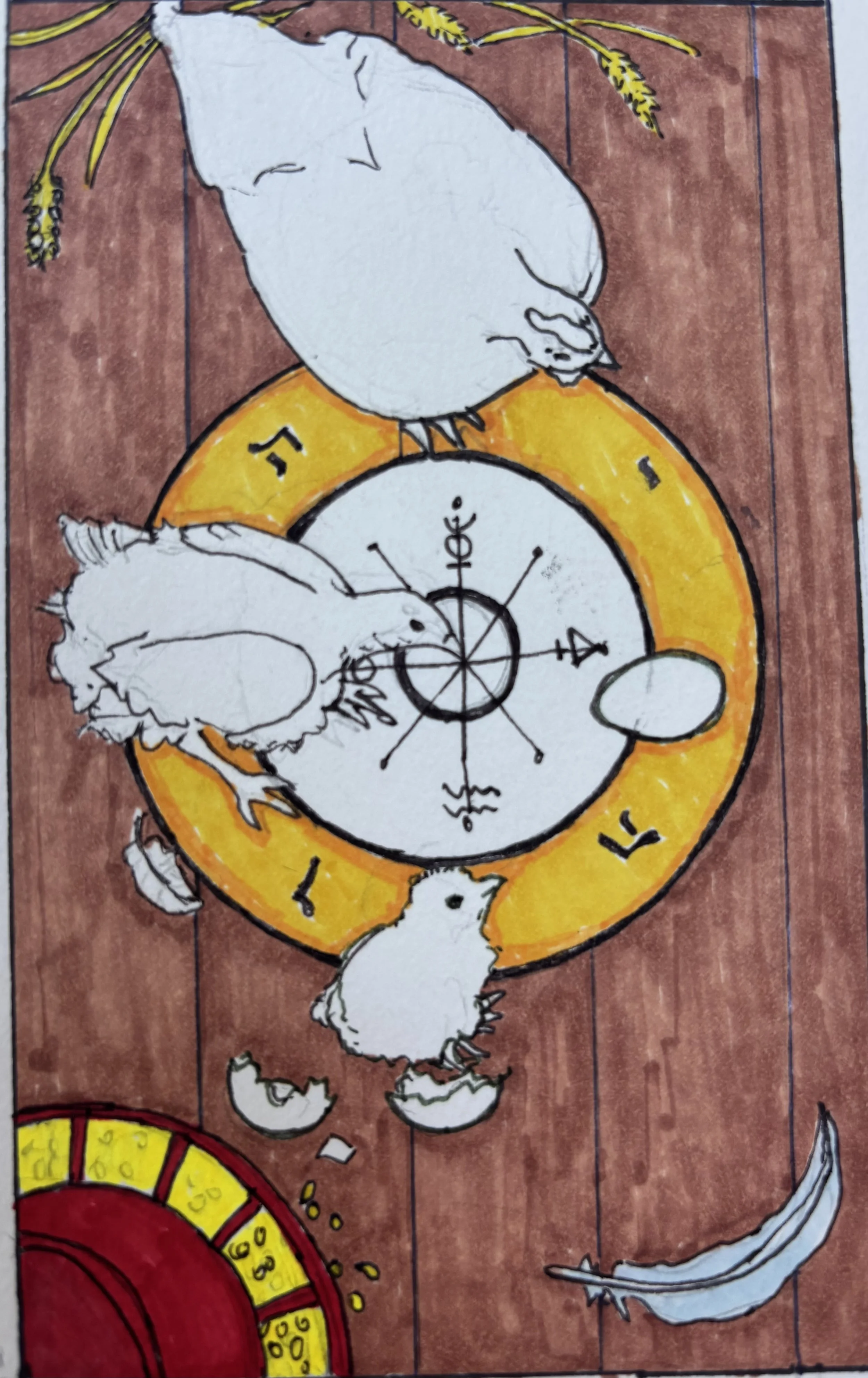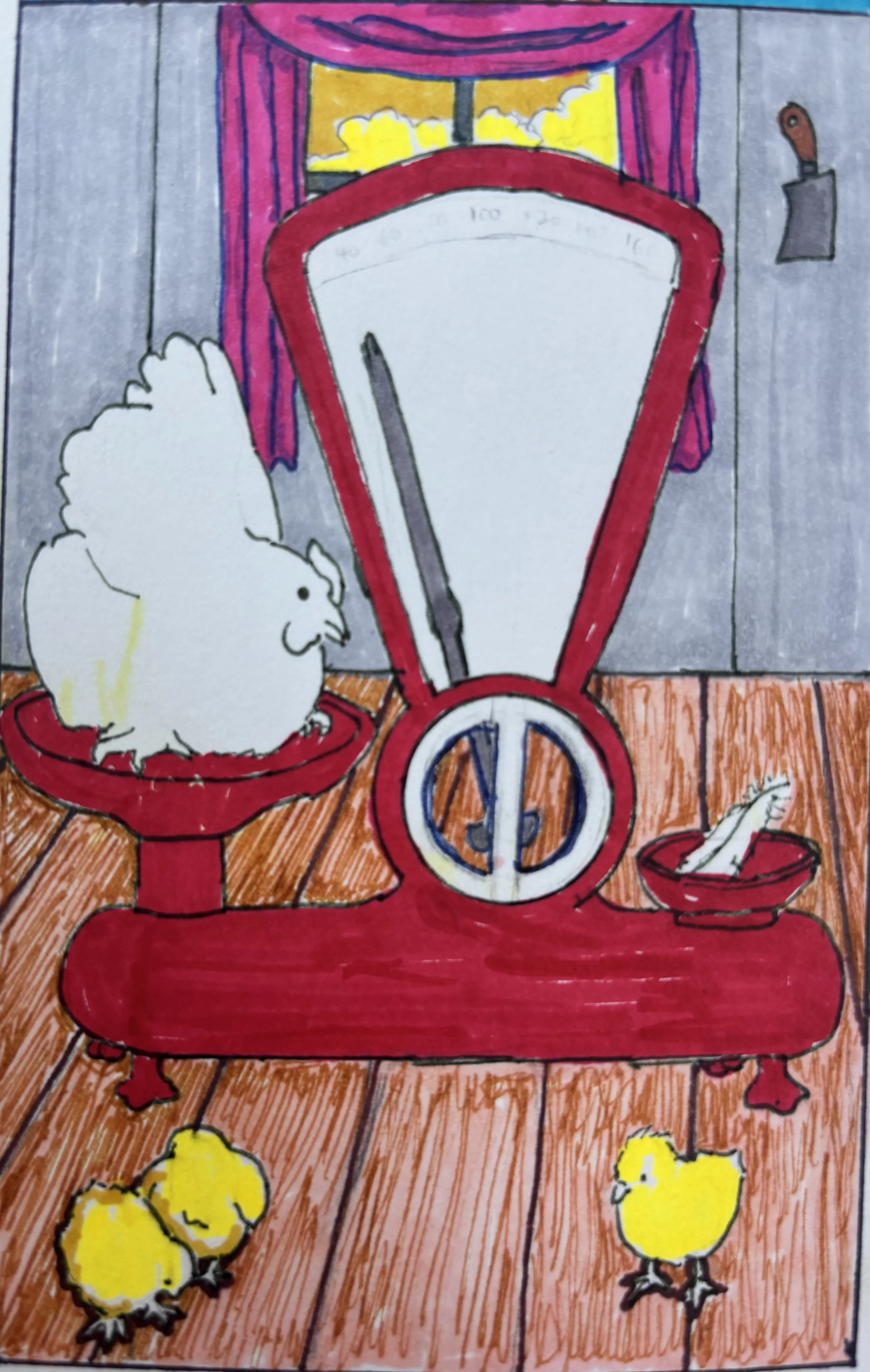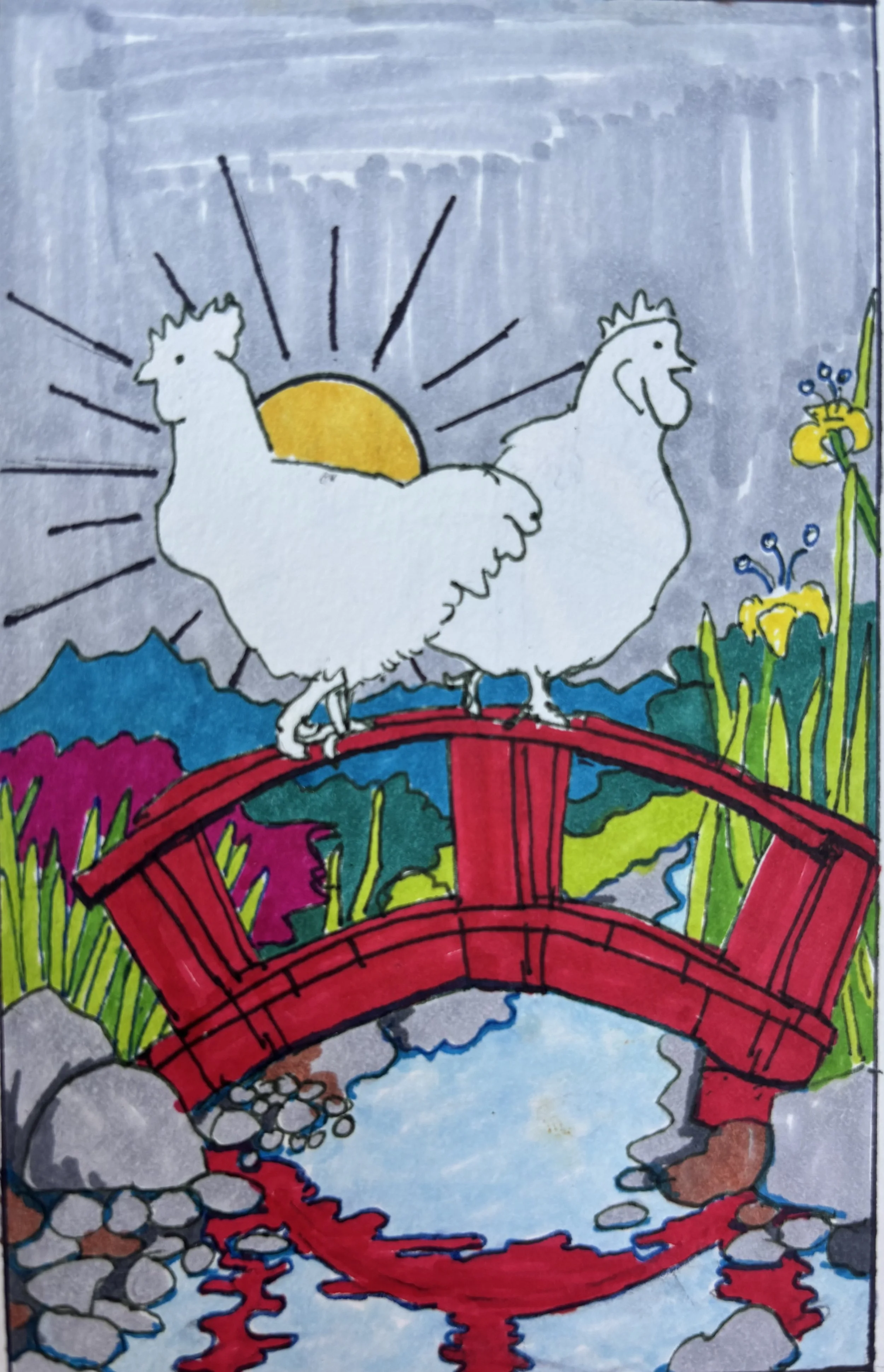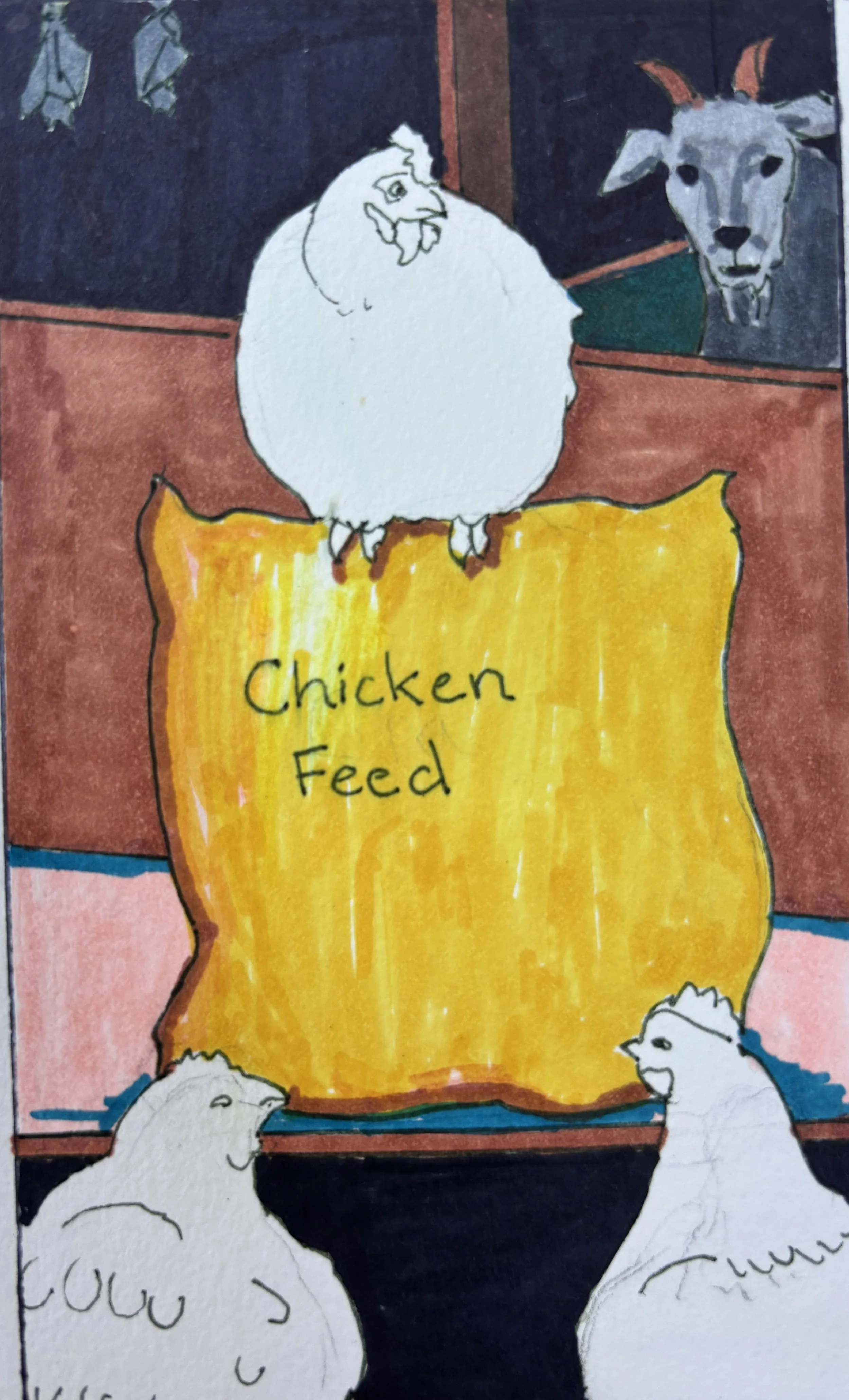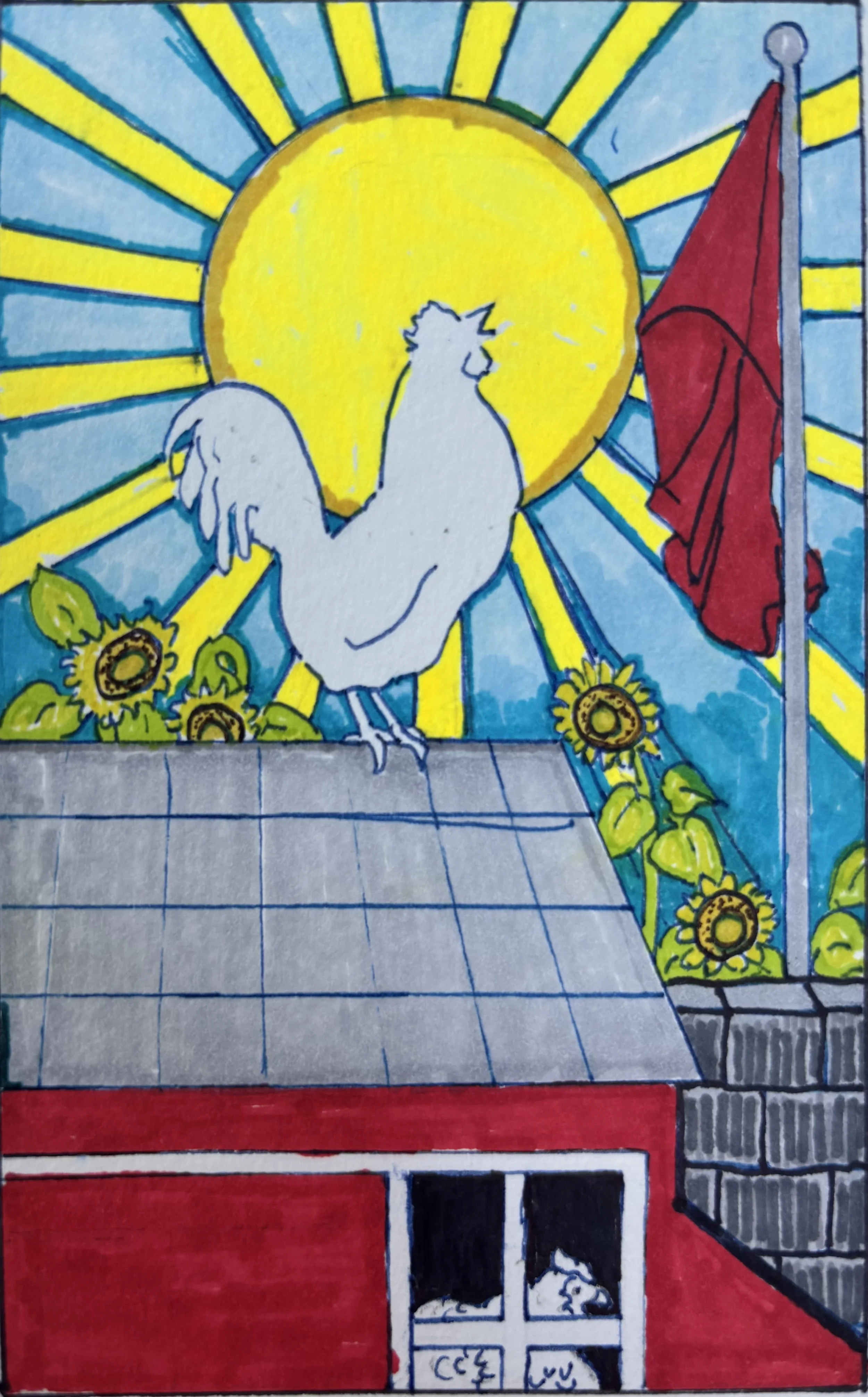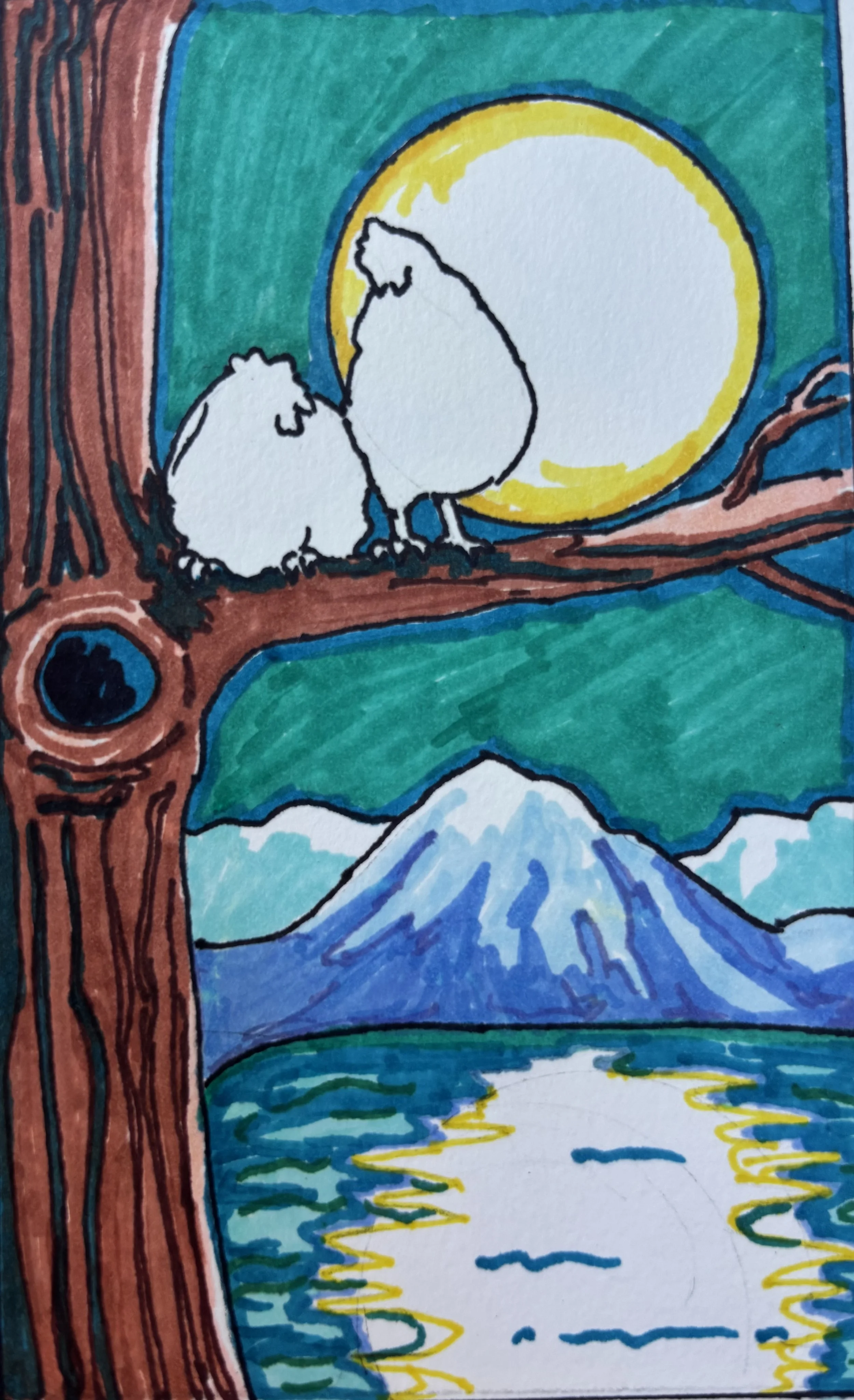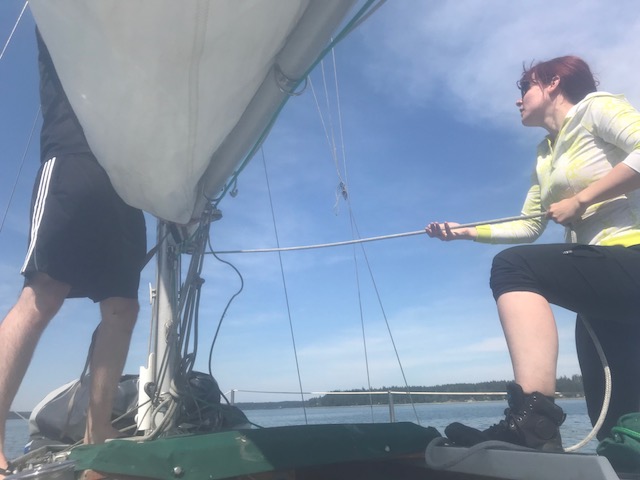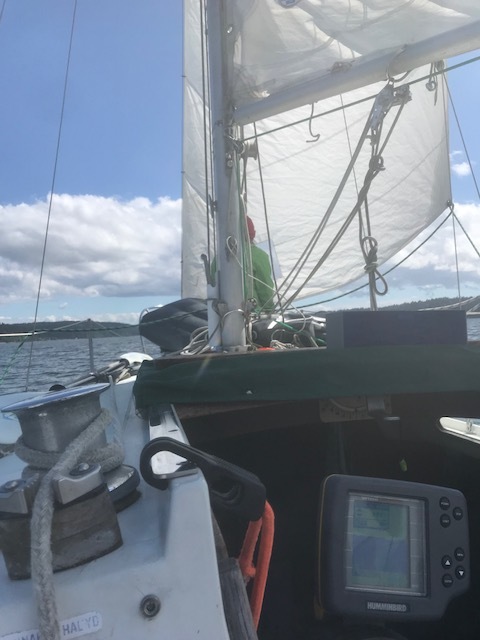The idea of hard work is a scam cooked up by people who wanted to convince others that they deserved a greater portion of the wealth.
When people are well fed, hydrated, and cared for, not only will they do hard work for free - they will pay to work hard. I paid $300 to run a 100K just because I wanted to see how far I could push my body. People work hard for many reasons that aren’t related to making money - to give birth to and raise children, to build relationships, to help each other, or to create art.
Hard work is a self-perpetuating myth.
When we push ourselves to the limit of discomfort, capitalist society gives us greater benefits, which reinforces that we have to work even harder to keep benefiting.
When I was in grad school while working full time, I worked myself to burnout because I thought that that was the only way I could secure my white collar future and maintain my financial stability. Perhaps it was - I won’t argue the reality of a capitalist system where we sometimes have to sacrifice our bodies, minds, and health to get what we need. Working too hard made me feel jealous and resentful of people who didn’t work as hard. It also made me less generous because I didn’t want to share the money that I was sacrificing my wellbeing and mental health to get.
Pushing myself to that extent ended exactly as you might expect - in total burnout. I ended up in a state where I would wake up and just stare at my computer screen, unable to force myself to work. Taking FMLA for mental health helped me to slowly recover. The Nap Ministry was one of the many things that helped me to accept my own exhaustion as legitimate. I will forever owe a debt of gratitude to Tricia Hersey.
Today I am feeling excited about work again. I decided to write this because I noticed that feeling excited about work isn’t something I can control. It simply happens when I’m feeling safe, nurtured, fed, well exercised, and well rested. Feeling excited about work is a privilege.
I was raised in the hegemony of the protestant work ethic and disdain for anyone seen as lazy. My dad worked three jobs throughout my childhood - he would wake up at 5am and sometimes work until late at night (he died when he was 60). I remember as a kid hearing my friend’s dad talking shit about his handyman who collected disability “even though” he was well enough to occasionally do odd jobs. The song “Go To The Ant” by Judy Rodgers fueled my absolute terror of being lazy. ADHD didn’t help - I was convinced that my inability to focus was a personal failing that could be conquered with hard work. Probably due to this, productivity has been a recurring theme on this blog since 2012. It was even the topic of my email I sent to thousands of people when I won the ListServe:
This post is a retraction of my previous posts that extolled productivity.
I don’t ever want anyone to feel guilty because they can’t work for whatever reason. You just have worker’s block. Your desire to work will come back when your other needs are met. That’s why socialism / intercommunity mutualism are necessary for a functioning society - they meet people’s immediate needs when people can’t work for whatever reason. Covering people’s needs with no strings attached keeps people who can’t work from becoming even more traumatized by their inability to get the resources and care they need to survive.
Bremerton is incredibly lucky to have a space for mutual aid - The People’s Exchange, or PEX. Everything there is always free or pay what you can. There is no fee to join. Anyone can show up for their various events or the free food and clothes that they offer every Thursday. The safety I feel because the generosity the community at PEX models is part of the reason I’m able to feel safe and secure enough to be excited about work again. Simply observing people caring for each other heals the parts of my nervous system that were fried by the cruel burden of rugged individualism.
Many societies have strong ethics of care and generosity towards people who aren’t able to care for themselves, including guests and immigrants. When the pilgrims got off the Mayflower and immediately started dying of starvation, the Wampanaog people not only gave them food to eat but they also shared their knowledge and seeds. In return, the pilgrims slaughtered them, stole their land, and destroyed their agricultural systems.
Indigenous agricultural systems in so-called North America were set up both for ease and for freedom of the animals. Fish weirs were engineered habitats that provided a great place for fish to spawn, ensuring that they were plentiful.
Passenger Pigeons flew overhead in such numbers that the sky was black.
Huge herds of Bison roamed freely.
Settlers, pioneers, and the U.S. Government worked together to destroy these food systems. Explicit extermination policies for these game animals were set out by the colonizing government in order to make indigenous peoples weak and dependent by breaking their connection to their land and foodways. The core strategy is known as "strategic resource denial" or "ecological warfare.”
This was part of a long-established toolkit of colonialism that European/Middle Eastern powers had been refining for centuries as far back as the Assyrians, who salted the fields of the people they colonized (or possibly even as far back as the Yamanya). These practices were perfected by the British powers in Ireland and Scotland before being imported to the New World.
Modern factory farming is resource intensive and cruel to the domesticated animals that it butchers NOT because it is more efficient or better, but because it was invented by colonizers to keep people busy and disconnected. Our agricultural systems suck (and require low-paid immigrant labor) because they were literally the systems that were left over when colonialism destroyed the better systems.
So many inefficiencies exist in society because of imperialism and capitalism. In the U.S., thousands of pounds of food are destroyed every day because food companies don’t want to lose out on profits. A friend described how he was forced to pour chemicals over any leftover bread when he finished his shift as a manager at Panera’s. Capitalist forces would rather have people starve and become homeless than lose profits. Meanwhile, a huge portion of our tax dollars go to fund the invention and manufacture of weapons because a handful of cowardly, super-wealthy men feel unsafe. It’s exhausting to think of all the extra labor that has to be done to fix all the problems that greedy people create with their endless wars and exploitation.
In his book “Bullshit Jobs,” David Graeber lays out five categories of bullshit jobs: Flunkies, Goons, Duct Tapers, Box Tickers, and Task Masters. Jobs that uphold systems of domination mostly fall into the Goons or Taskmasters category. For instance, Robert Oppenheimer had a bullshit job as an elite Goon. Peter Thiel is a Taskmaster who is a mass creator of bullshit jobs. Lots of people work very hard at jobs that provide no tangible benefit to society or that even make society worse.
Even ignoring the immense human toll that many of these jobs take, these inefficiencies hurt my little optimizing heart. I want things to be efficient so that we have plenty of time left over to create art, read books, form relationships, and wonder at this beautiful planet.
When I first saw the title of the book “Laziness Does Not Exist” by Devon Price, the first thing I thought was “Yes it does exist. Slave owners were lazy motherfuckers.”
However, I’ve since realized that the people at the top of a system of domination also have to work hard to keep their position at the top. They have to make sure that nobody revolts, that the police forces and military that exist to enforce their domination are well funded, and that they have found and exploited all of the tax loopholes. Domination ends up trapping the dominators in an endless cycle of trying to stay on top. Just as the patriarchy traps men, capitalism traps the capitalists. Ain’t no rest for the wicked.
It’s great to take pride in your work, but don’t use overworking as an excuse to set up hierarchies about who should receive care. After all, the only reason we have to work so hard at all is because our systems are broken. That’s nothing to be proud of.
So take a nap. Care for yourself.
And if you can’t work for whatever reason, know that I’m sending you lots of love and I hope that you get all the abundant rest and care that you deserve.
I’ll leave you with a card from Tricia Hersey’s rest deck:



